The Government issued an Action Program to make breakthroughs in education and training development.
On September 15, 2025, in Resolution No. 281/NQ-CP, the Government issued the Action Program to implement Resolution No. 71-NQ/TW on breakthroughs in education and training development.
The Government requests ministries, ministerial-level agencies, Government agencies, People's Committees of provinces and centrally run cities to continue effectively implementing Resolution No. 29-NQ/TW on fundamental and comprehensive innovation of education and training, Conclusion No. 91-KL/TW to continue implementing Resolution No. 29-NQ/TW and resolutely, effectively and synchronously organize the implementation of the following 8 tasks:
Firstly, raise awareness, innovate thinking and action, and determine strong political determination to make a breakthrough in education and training development.
Second, strongly innovate institutions, create unique and outstanding mechanisms and policies for education and training development.
Third, strengthen comprehensive education in ethics, intelligence, physique, and aesthetics, forming a system of values for Vietnamese people in the new era.
Fourth, comprehensive digital transformation, popularization and strong application of digital technology and artificial intelligence in education and training.
Fifth, focus on building a team of teachers and standard school facilities, improving the quality of preschool and general education.
Sixth, reform and modernize vocational education, creating a breakthrough in developing human resources with high vocational skills.
Seventh, modernize and improve university education, create breakthroughs in developing highly qualified human resources and talents, and lead research and innovation.
Eighth, promote deep international cooperation and integration in education and training.
Based on the contents of Resolution No. 71-NQ/TW and the Government's Action Program, ministries, ministerial-level agencies, government agencies, and People's Committees of provinces and cities, according to their functions and tasks, shall develop, promulgate, and organize the implementation of a plan to implement Resolution No. 71-NQ/TW and the Government's Action Program in October 2025.
Ministries, ministerial-level agencies, Government agencies, People's Committees of provinces and cities are responsible for reviewing programs and action plans to implement the Party's Resolutions and the Government's Action Programs that have been issued and are still in effect related to education and training to adjust and synchronize with the programs and action plans to implement this Resolution, to be completed in 2025.
Ministers, Heads of ministerial-level agencies, Government agencies, Chairmen of People's Committees of provinces and cities focus on directing the implementation of assigned tasks in the Government's Action Program and the attached Appendix; strengthen inspection and supervision of the implementation of the Government's Action Program, and annually report the implementation results to the Ministry of Education and Training (MOET) before December 1 for synthesis and reporting to the Government.
The Ministry of Education and Training shall preside over and coordinate with ministries, branches and localities to monitor and urge the implementation of the Action Program, promptly report and recommend to the Government and the Prime Minister necessary measures to ensure synchronous and effective implementation of the Action Program; closely follow the relevant contents in the Working Program of the Party Central Committee, the Politburo, the Secretariat, the National Assembly and the National Assembly Standing Committee to make reports as prescribed.
The Ministry of Finance presides over and coordinates with ministries, branches and localities to ensure annual funding sources for implementation according to Resolution No. 71-NQ/TW.
During the implementation process, if it is deemed necessary to amend or supplement specific contents of the Government's Action Program, ministries, branches and localities shall proactively propose to the Ministry of Education and Training for synthesis and reporting to the Government for consideration and decision.

Amending and supplementing some contents in the General Education Program
The Ministry of Education and Training issued Circular No. 17/2025/TT-BGDDT amending and supplementing a number of contents in the General Education Program. The revised content focuses on the following contents:
For History and Geography subjects at Primary and Secondary levels, Geography subject for grade 12: revise and supplement contents related to socio-economic regions such as production territory organization of some economic sectors, socio-economic regional boundaries; names and number of provinces and cities in the region, area size, population of the region; economic development resources, development situation, distribution of economic sectors in the regions and some other contents to ensure logic in implementation.
For the Civic Education program: amend and supplement the 10th grade program on the topic "Political system of the Socialist Republic of Vietnam" and the topic "Constitution of the Socialist Republic of Vietnam".
For History subject: amend and supplement the Selective Study Topic in grade 10 (topic "Vietnamese State and Law in History").
The issuance of the Circular amending and supplementing the General Education Program issued together with Circular No. 32/2018/TT-BGD&DT of the Minister of Education and Training ensures that the General Education Program is consistent with changes, ensuring the scientific nature and practicality of the subjects.
Regarding the implementation of the general education program and textbooks for the 2025-2026 school year, educational institutions will continue to use the selected textbooks; at the same time, organize reviews and direct professional teams and teachers to adjust the materials in lessons and topics to suit the rearrangement of provincial-level administrative units, the organization of two-level local governments and the amended and supplemented contents of the Constitution.
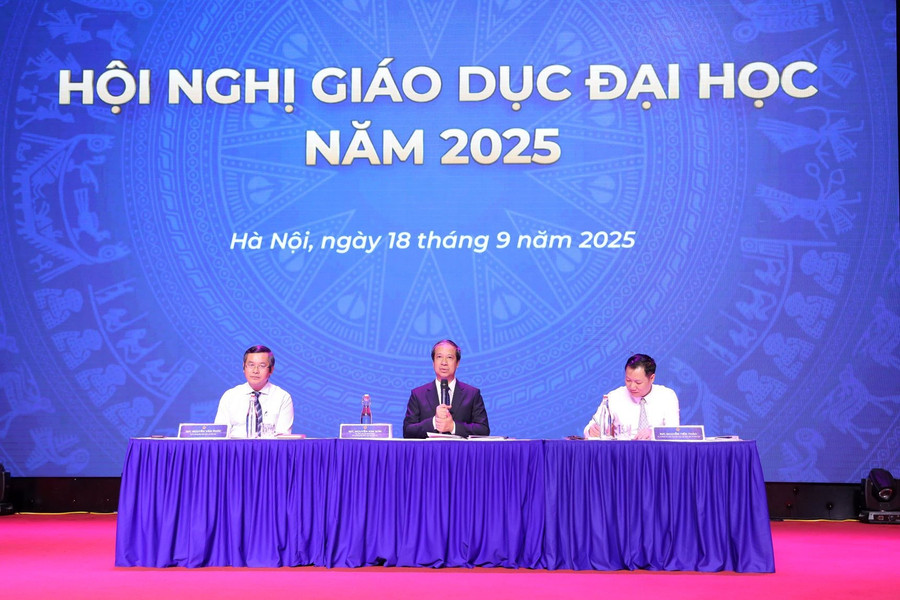
Higher Education Conference 2025
On the morning of September 18, in Hanoi, the Ministry of Education and Training held the 2025 Higher Education Conference. Minister Nguyen Kim Son chaired the conference.
Concluding the conference, Minister Nguyen Kim Son emphasized: “We are facing a great opportunity to develop higher education. This is an opportunity, a chance, an important breakthrough. If we do not promptly grasp and promote the advantages, we will miss the beat.” Through this conference, the Minister hopes that the entire industry will join hands to take action to seize this rare opportunity.
According to the Minister, with Resolution No. 71-NQ/TW, the guiding spirit of the Politburo is: a more correct view of the position and role of higher education with appropriate investment; the desire for universities to develop at a faster and stronger pace, with clearer orientation, thereby having a team of highly qualified human resources, especially in the national field that is in great demand.
During the process of advising on the development of Resolution No. 71-NQ/TW, the Ministry of Education and Training has persistently included the breakthrough content: “The viewpoint of maximizing the autonomy of higher education institutions, regardless of the level of financial autonomy. This is considered an important foundation for innovation, opening up opportunities for strong development for the entire higher education system.
Regarding the policy of not organizing school councils in public institutions, except for schools with international agreements, implementing the Party Committee Secretary as the head, the Minister emphasized: it is necessary to innovate and strengthen the comprehensive and direct leadership role of the Party organization, especially the role of the head of the Party Committee in educational institutions. In the coming time, the Ministry of Education and Training will stipulate standards and conditions for the positions of Secretary and Principal for schools to implement.
The Minister also emphasized the viewpoint of the Ministry of Education and Training is to overcome the fragmentation, smallness, and lack of development among schools, especially schools that are close to each other in terms of fields. The spirit is to arrange schools to become stronger. At the same time, the Ministry is also amending the Law on Higher Education with the principle of "firmly grasping what needs to be grasped, decisively letting go of what needs to be let go". The Ministry in charge will focus on three things: licensing, revoking licenses, and dissolving; appointing, dismissing, transferring, and rotating leaders; and approving strategies, goals, and missions of public schools.
Regarding the autonomy of higher education institutions regardless of financial autonomy, the Minister said that a separate decree will be issued in the near future. The Ministry will advise the Government and the Prime Minister to strongly shift from regular financial support to the form of ordering and direct support through learners, so that schools can be more proactive in terms of revenue sources.
The Minister requested schools to more quickly deploy a number of training fields linked to high-tech needs; more quickly deploy the digital transformation process, apply artificial intelligence throughout the industry...

New regulations on rewards and discipline for students; draft code of conduct for teachers
Last week, the Ministry of Education and Training issued Circular No. 19/2025/TT-BGD&DT regulating rewards and discipline for students in educational institutions. Also in the week, the draft Circular regulating the code of conduct for teachers in educational institutions was announced by the Ministry of Education and Training.
Circular No. 19 stipulates 5 forms of commendation; removes specific titles and honorary boards from the official list of forms; simplifies formal procedures, focuses on implementing the principles of commendation and regulations in the Law on Emulation and Commendation.
"Letter of commendation" is a new form of commendation mentioned in Circular No. 19; it is given to students who have improved their learning and training results, surpassed themselves or have outstanding achievements. This form can be given by teachers, principals or higher management levels depending on the nature and level of achievement.
There may be other appropriate forms of commendation and reward carried out by agencies, organizations and individuals to provide timely encouragement.
Regarding disciplinary principles, Circular No. 19 adds principles such as respect, tolerance, no prejudice, ensuring the rights and interests of students; strictly prohibiting the use of disciplinary measures that are violent, insulting to dignity, and affecting the physical and mental health of students.
Prohibited acts under the Law on Education are supplemented in the Circular and given specific levels of violation classification: Level 1 (harm to oneself), Level 2 (negative impact within the group, class), Level 3 (negative impact within the school).
Regarding the system of disciplinary forms, the Circular divides disciplinary forms according to school levels. Accordingly, for primary school students, there are only 2 measures: Warning (applied to level 1) and Request for apology (applied when re-offending level 1 after warning or level 2 or higher).
For students outside of primary school, there are only 3 measures: Warning (applied to level 1), Criticism (applied when re-offending level 1 after warning or level 2), Requiring to write a self-criticism (applied when re-offending level 1/2 after previous measures, or level 3).
Severe forms of discipline such as: Reprimand before the Disciplinary Council, warning in front of the whole school, expulsion for one week, expulsion for one year according to old regulations have been eliminated; new measures requiring an apology and requiring a self-criticism have been added.
Circular No. 19 does not stipulate the recording of disciplinary measures against students in their records and transcripts. It only stipulates that the student's self-criticism is kept in the school's records.
Some of the main support activities are regulated, such as advising, motivating, monitoring, counseling, requesting appropriate activities, and coordinating with families. The old regulations only mentioned in general the principle of having a monitoring plan and helping with correction.
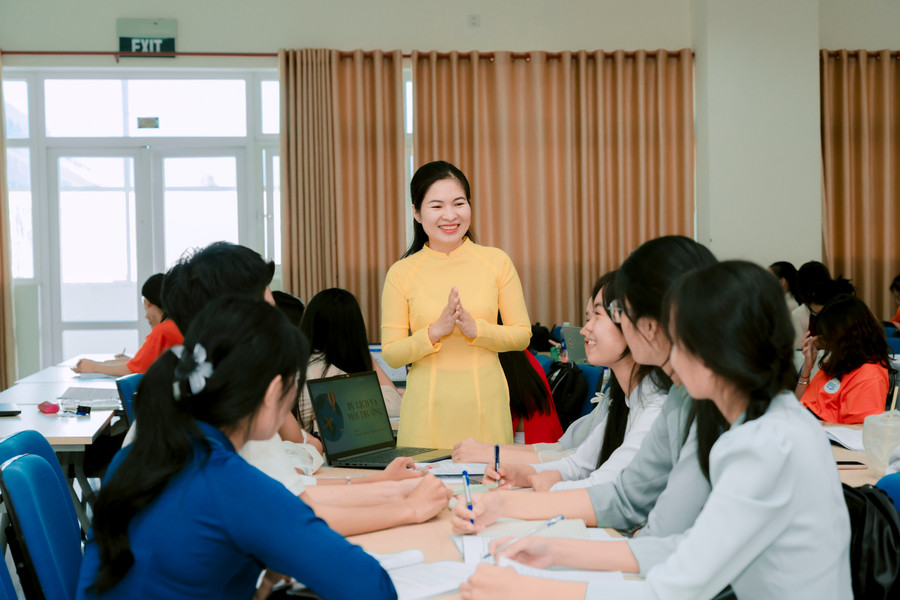
The draft Circular regulating the code of conduct for teachers in educational institutions was announced by the Ministry of Education and Training on September 17.
In particular, the general code of conduct stipulates core rules on strictly complying with the Party's guidelines and policies, the State's policies and laws; preserving the qualities, prestige, honor, dignity and ethics of teachers; being dedicated to work; teaching and educating according to educational goals and principles; not taking advantage of the title, title, image of teachers and professional activities to commit illegal acts or for personal gain; preventing school violence, building a safe, healthy, friendly, democratic, innovative and creative educational environment, etc.
The general code of conduct also stipulates that teachers must not be indifferent, avoid or conceal violations occurring in educational institutions; must not insult or impose; must not profit from or force parents or guardians or learners to contribute money or goods contrary to the provisions of law; must use appropriate, honest, respectful, friendly, cooperative and sharing language; must preserve and promote the cultural identity of the nation, etc.
The draft Circular also specifically stipulates the code of conduct for learners; code of conduct for colleagues; code of conduct for educational institution managers; code of conduct for the community...
Information about students of Dai Kim Secondary School (Hanoi) misbehaving with teachers
According to information from the Hanoi Department of Education and Training, on the afternoon of September 16, 2025, at Dai Kim Secondary School, a student of class 7A14 committed misconduct against the homeroom teacher (pulling hair, holding the teacher down, and snatching back toys) when the teacher confiscated sharp, pointed toys that posed a safety risk.
After the incident, the Board of Directors of Dai Kim Secondary School organized for students to admit their mistakes, invited parents to work to agree on educational measures; promptly encouraged and stabilized the teachers' spirit; reported to the Ward People's Committee and relevant agencies to coordinate the resolution.
Immediately after receiving information about the incident, the Ministry of Education and Training sent a document requesting the Hanoi Department of Education and Training and Dai Kim Secondary School to report the incident; at the same time, sent a document to the Hanoi People's Committee and the Dinh Cong Ward People's Committee requesting the direction of local authorities to verify and strictly handle violations (if any) according to the provisions of law to ensure the safety of life, health, honor and dignity of teachers when performing their duties.
The Ministry of Education and Training said that this is a serious incident, affecting the safety and health of teachers; negatively affecting the educational environment and the tradition of "respecting teachers and valuing education" of our nation; contrary to the regulations of the Government and the Ministry of Education and Training on building a safe, healthy, friendly pedagogical environment and preventing school violence.
Therefore, all wrongdoings must be strictly handled according to the provisions of the law. On the other hand, in handling students, especially in special cases, it is necessary to consider appropriate measures to ensure both education and deterrence and create conditions for students to correct their mistakes.
The Ministry of Education and Training requested the Hanoi Department of Education and Training to learn from experience and direct schools, especially Dai Kim Secondary School, to focus on building a safe, healthy, democratic pedagogical environment without school violence.
The Ministry of Education and Training also emphasized the need to pay attention to moral education, awareness of law compliance, and respect for teachers for students; to do a good job of school psychological counseling, to promptly detect cases of students showing abnormal psychological signs so that, together with their families, they can take appropriate care and education measures. Along with that, it is necessary to improve the management and operation capacity of the Board of Directors, to proactively and promptly handle unsafe situations in schools; to promptly detect and prevent student misconduct; to closely coordinate with students' families and local authorities to ensure school safety.
Source: https://giaoducthoidai.vn/nong-trong-tuan-trien-khai-nghi-quyet-71-quy-dinh-khen-thuong-ky-luat-hs-post749301.html


![[Photo] Prime Minister Pham Minh Chinh chairs the first meeting of the Central Steering Committee on housing policy and real estate market](https://vphoto.vietnam.vn/thumb/1200x675/vietnam/resource/IMAGE/2025/9/22/c0f42b88c6284975b4bcfcf5b17656e7)












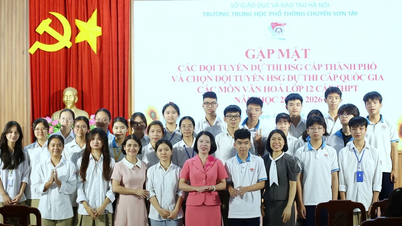
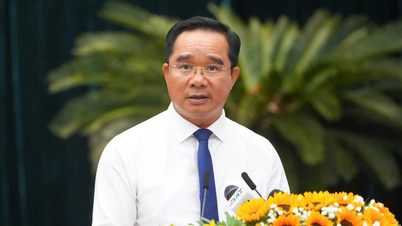




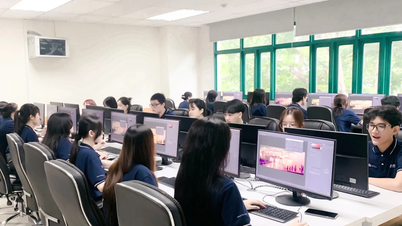

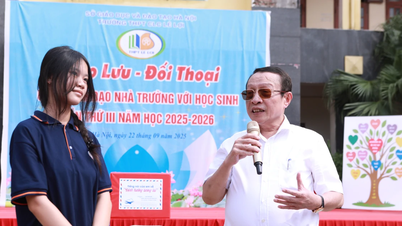

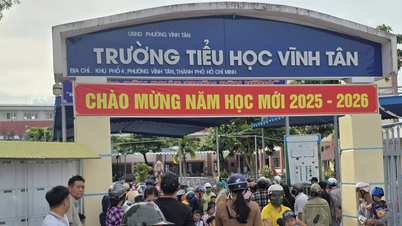

![[Photo] General Secretary To Lam presents the First Class Labor Medal to the Vietnam National Energy and Industry Group](https://vphoto.vietnam.vn/thumb/1200x675/vietnam/resource/IMAGE/2025/9/21/0ad2d50e1c274a55a3736500c5f262e5)



























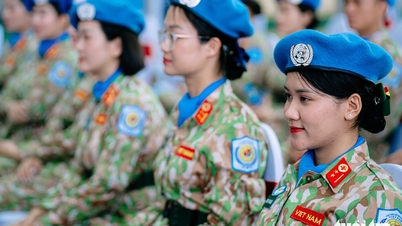








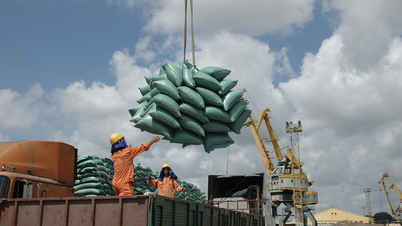











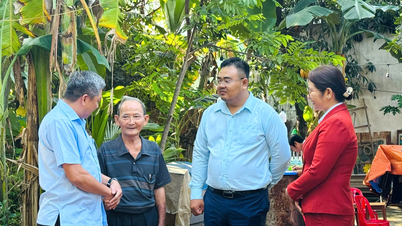















Comment (0)